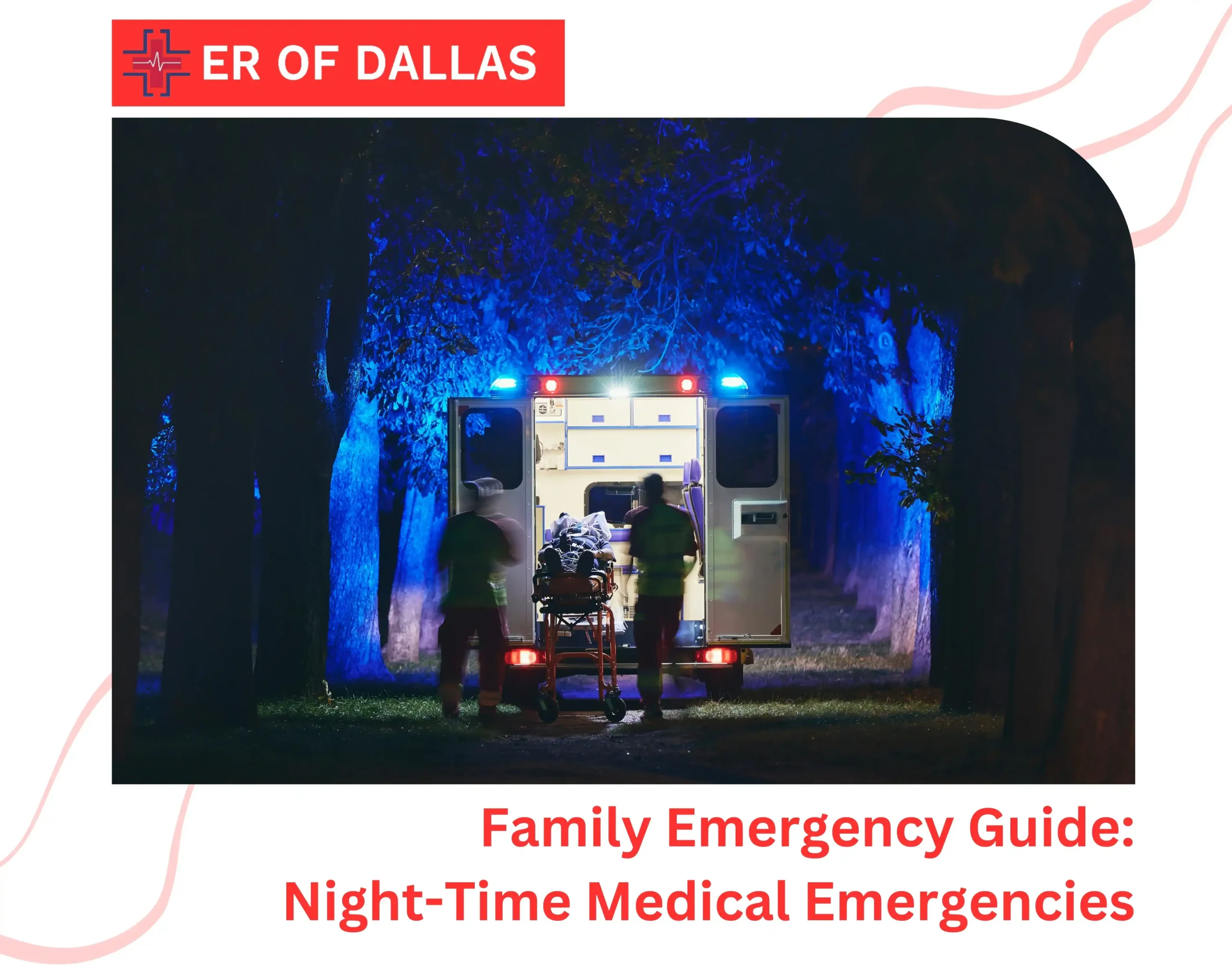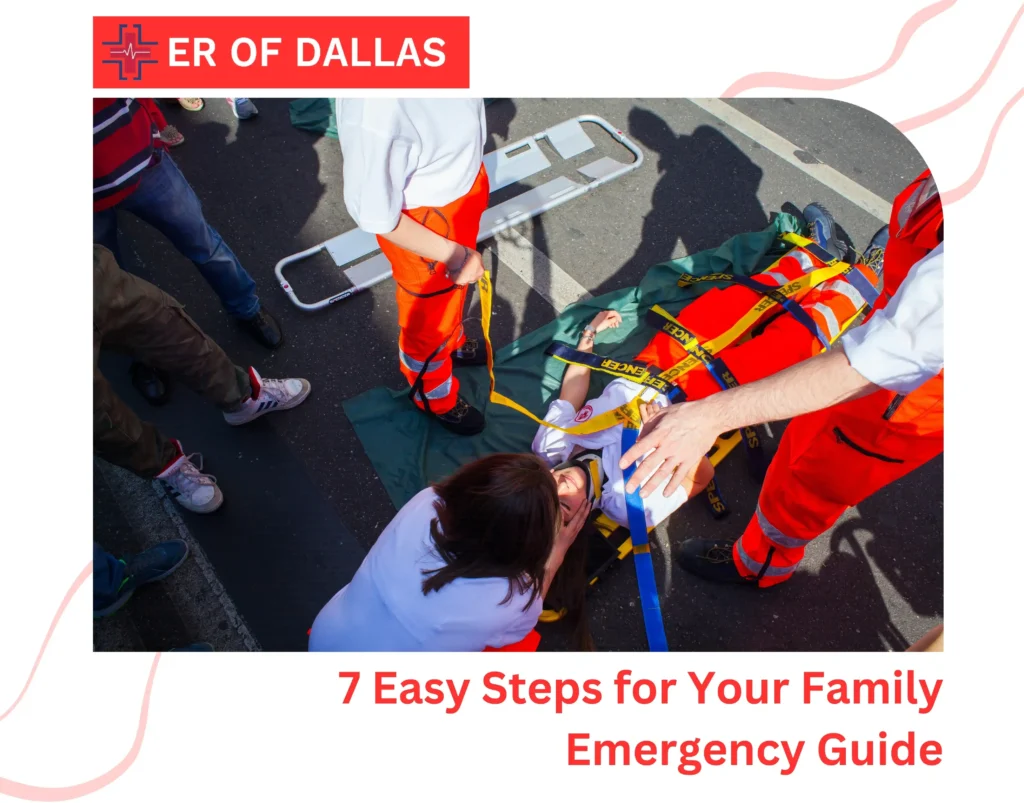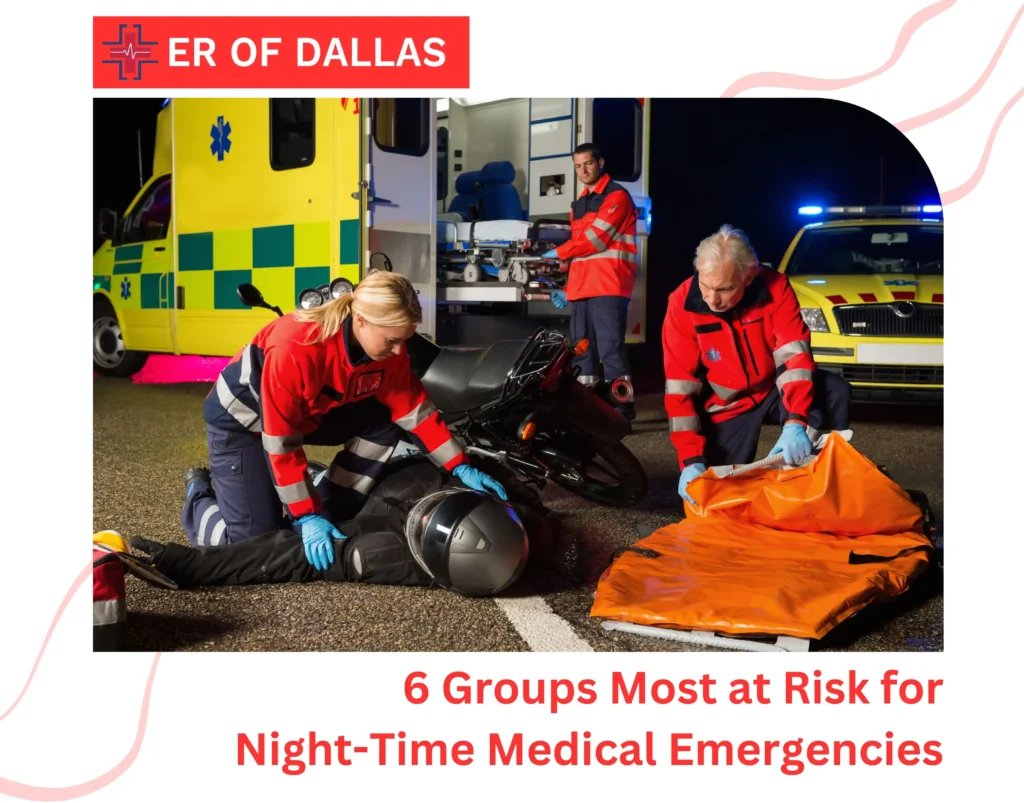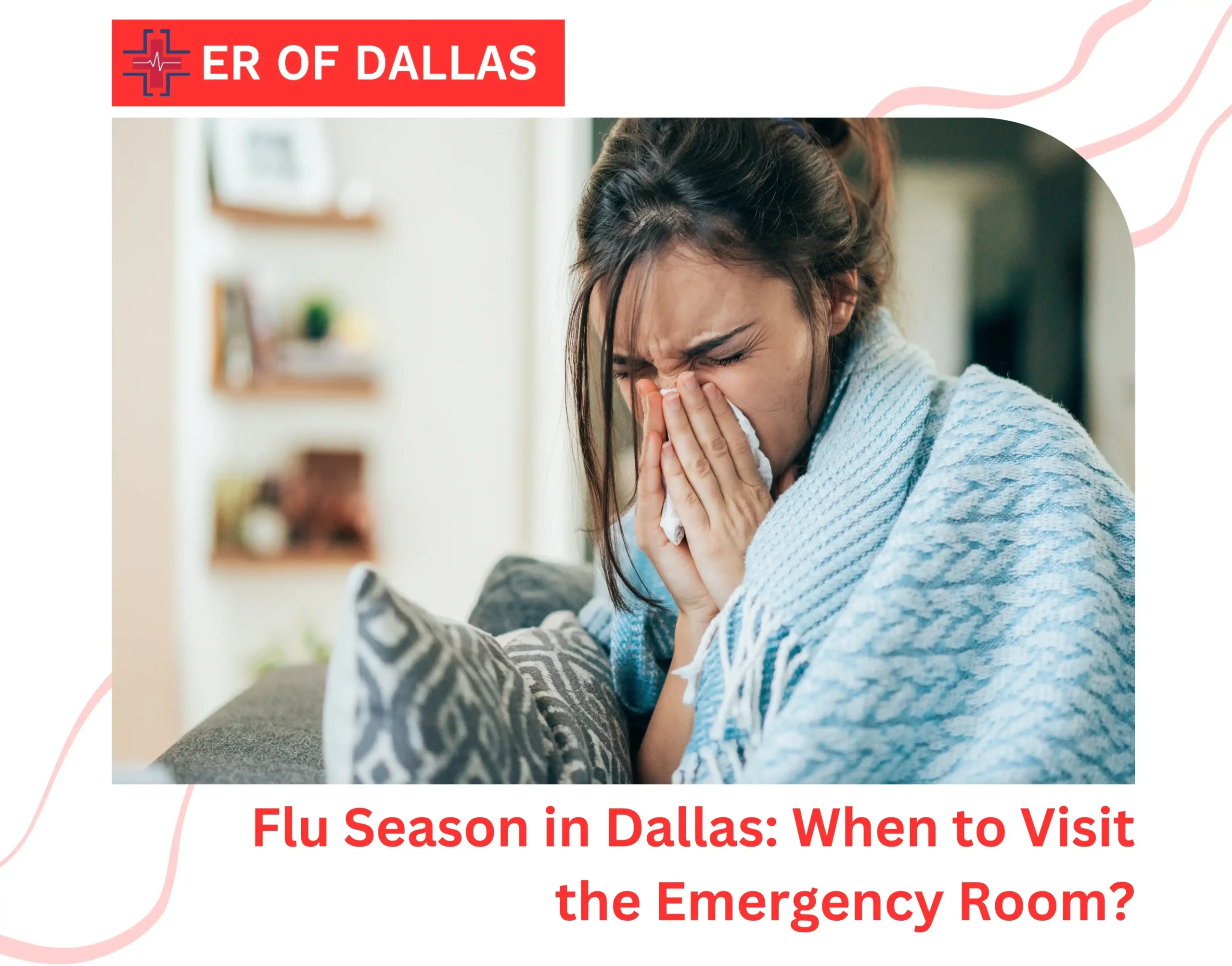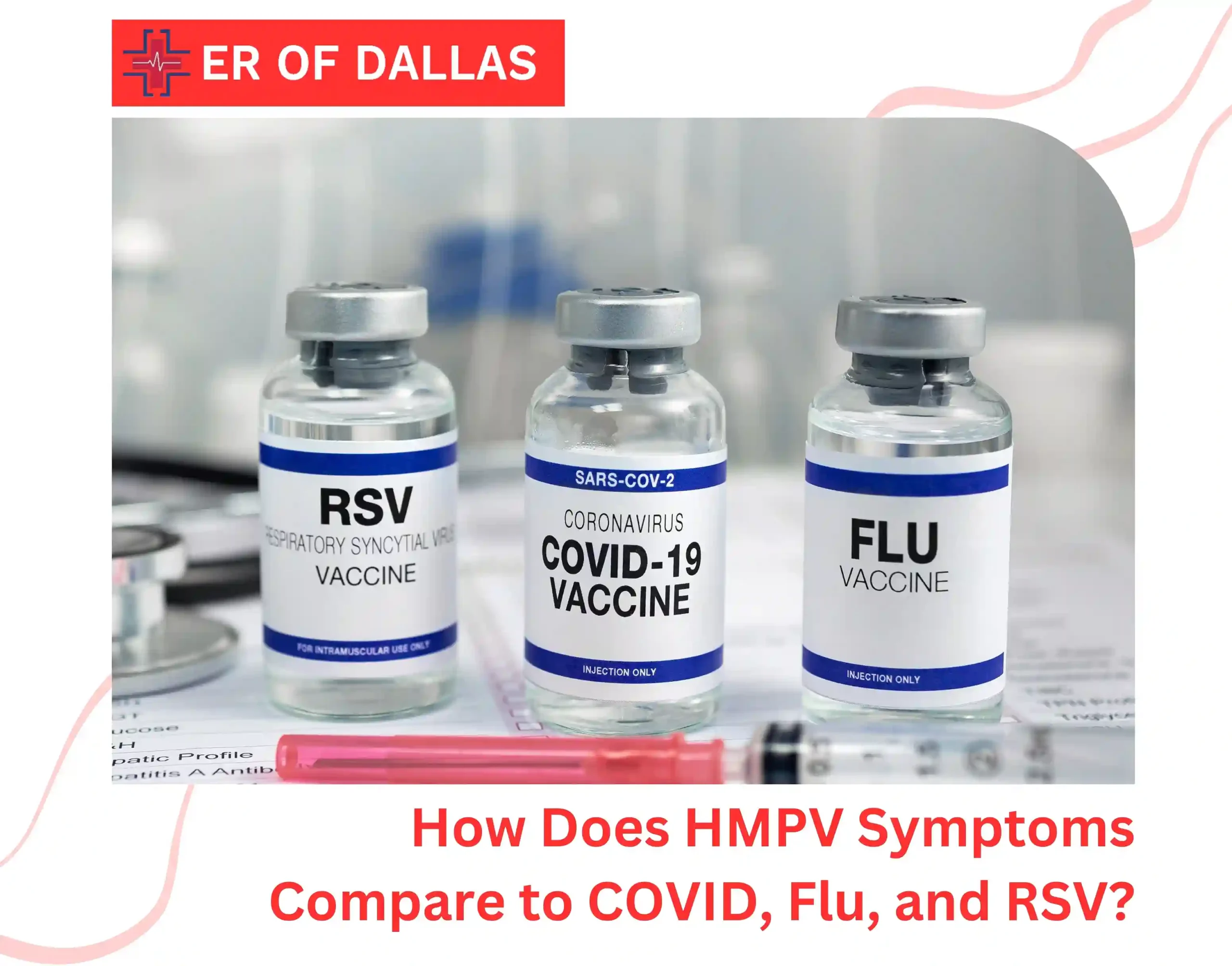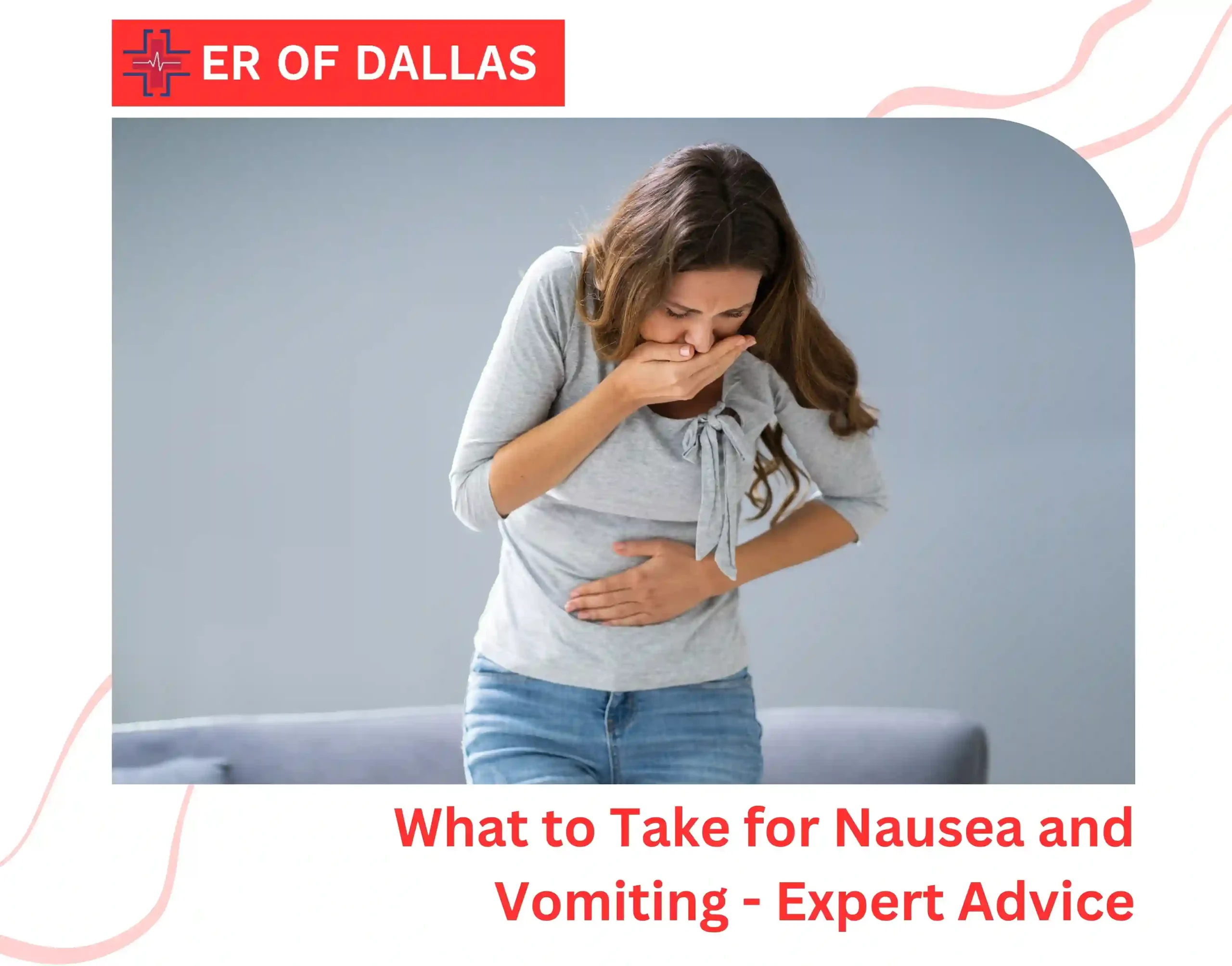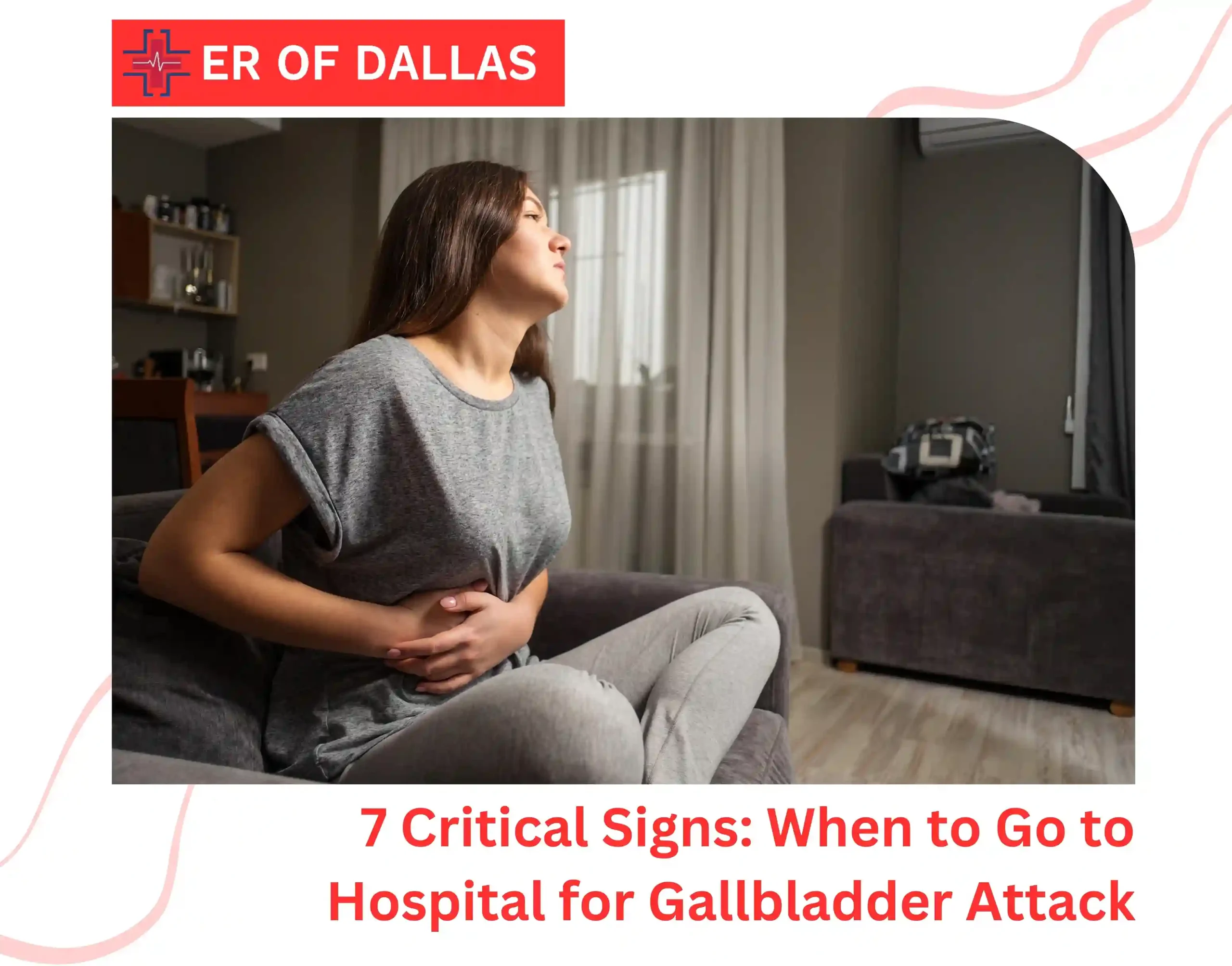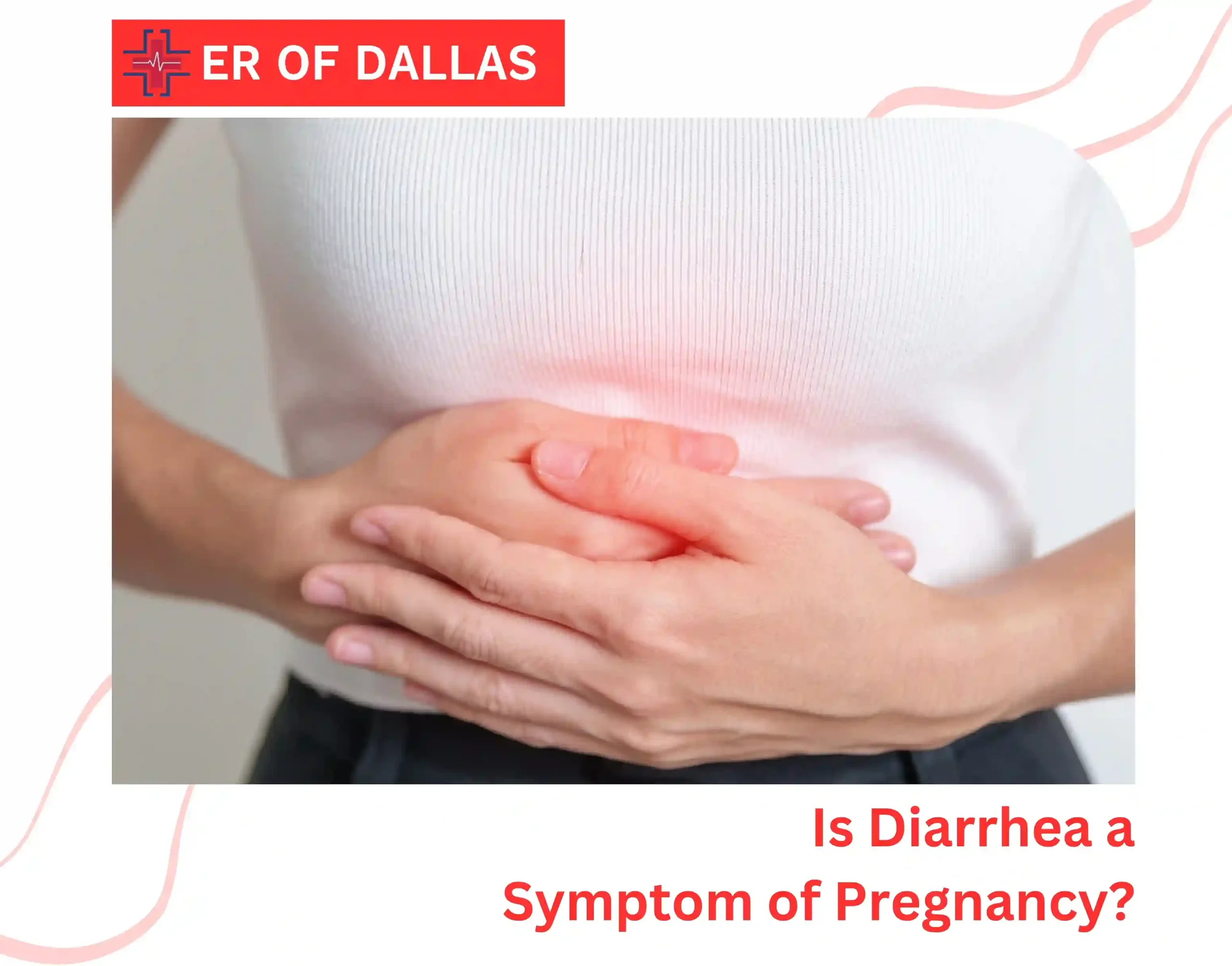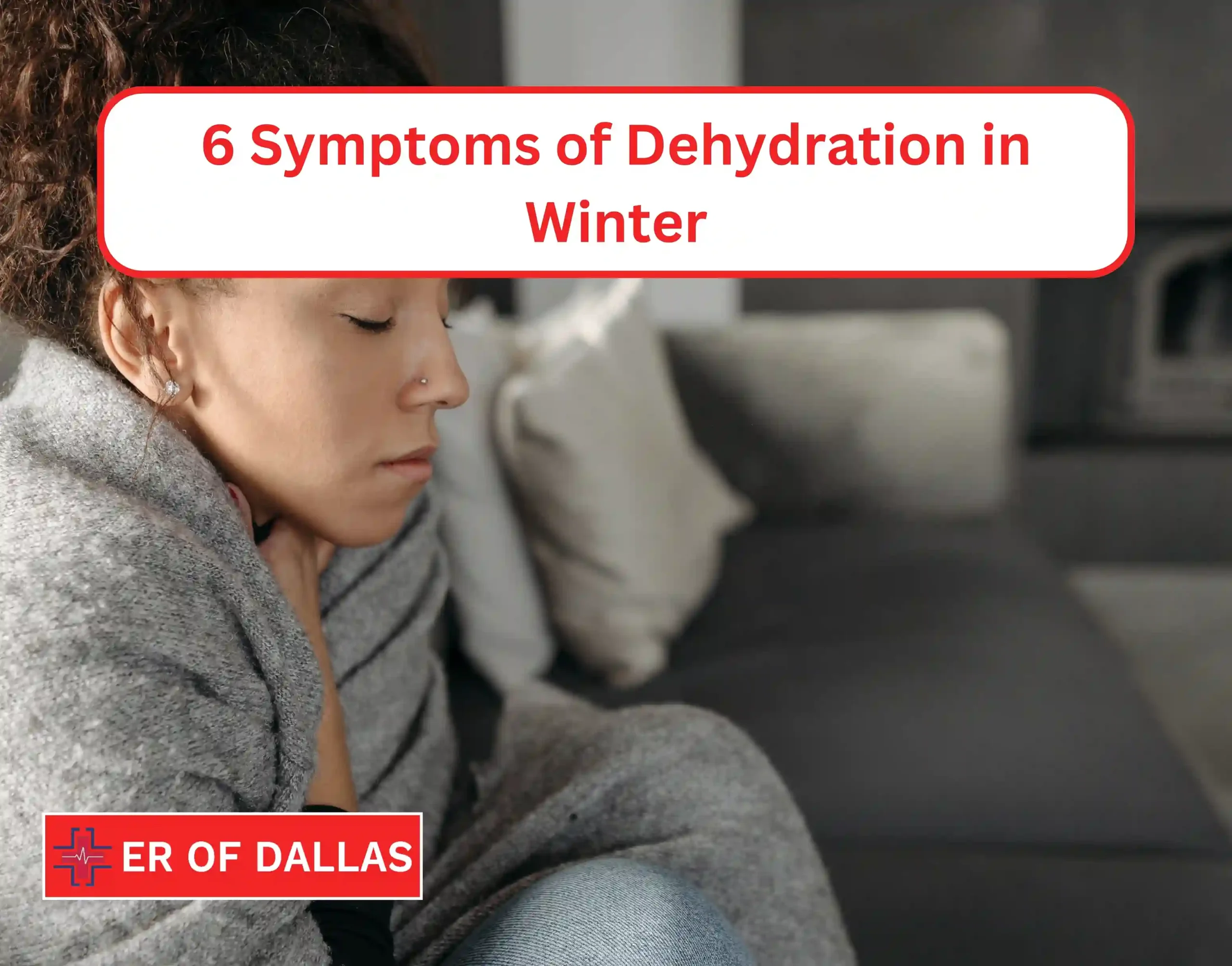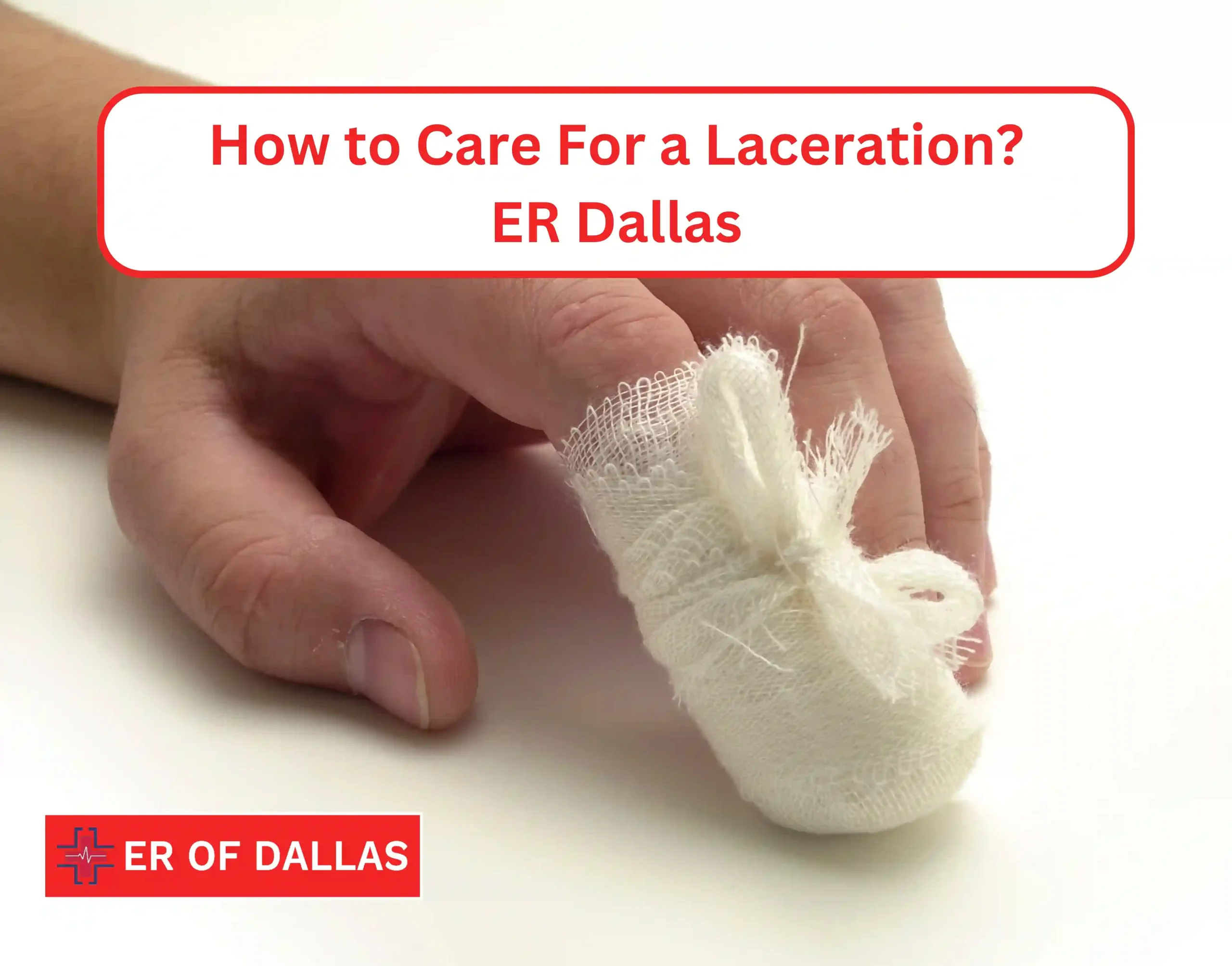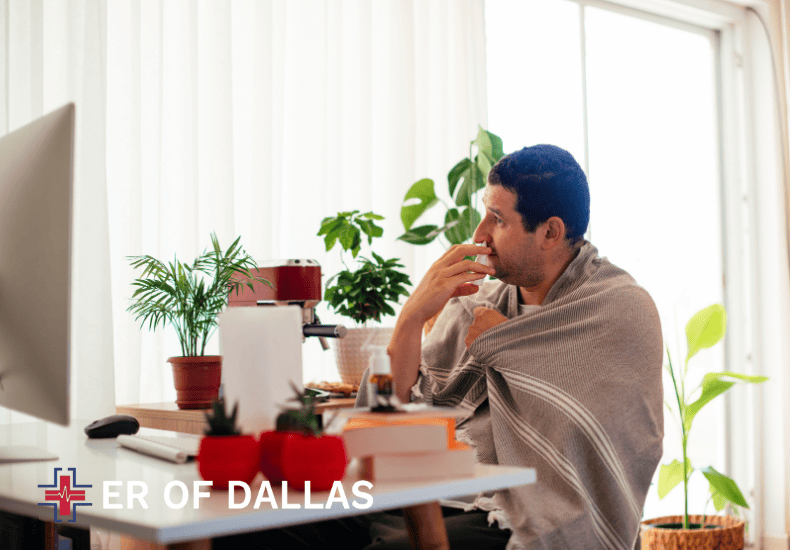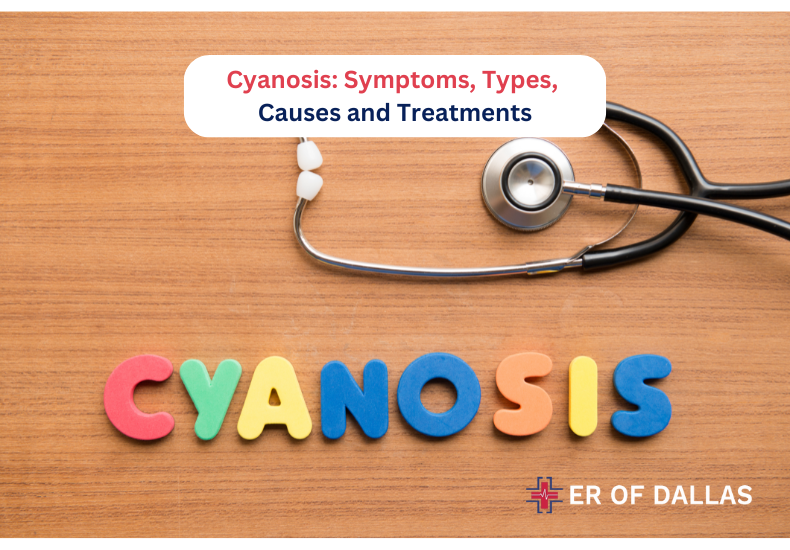It’s 2 a.m., and your spouse clutches their chest in pain, or your child starts running a dangerously high fever. In the dark and confusion, even simple things become hard – finding car keys, remembering which ER is closest, or deciding who stays at home. These small delays can become serious problems when emergency preparedness matters most.
We’ve treated thousands of nighttime emergencies at the Dallas ER in Texas, and we’ve noticed something important: families with a family emergency plan get help faster than those who have to figure things out during the crisis.
This family emergency guide provides specific steps to prepare for night emergencies, including a room-by-room checklist of what to gather now, where to keep it, and who should do what when minutes matter.
7 Easy Steps for Your Family Emergency Guide
Night-time emergencies can be dangerous if not handled right. Here’s how you can make an emergency preparedness plan ahead of time:
1. Stock Your Emergency Supplies
Keep a medical kit nearby with all these basics so you don’t have to search for stuff in the middle of an emergency:
- Pain medicine (ibuprofen or acetaminophen)
- Antihistamines for allergies
- A thermometer to check for fever
- Battery-powered flashlight with extra batteries
- Basic first aid supplies: bandages, gauze, medical tape, antiseptic wipes
- Any family member’s prescription medications
2. Keep Emergency Contacts Handy
You don’t want to waste time looking for numbers in an emergency, so keep these contacts in easy reach:
- Nearest 24 hour emergency room
- Your primary care doctor’s number
- Poison control: 1-800-222-1222
- Each family member’s medical ID with details like age, blood type, allergies, current medications, and chronic conditions (consider using apps that can store this info)
Post these numbers on the fridge or save them on your phone, wherever they are easy to grab. If you’re in the Dallas-Fort Worth area facing a medical emergency, you can call us at (214) 613-6694 or visit us for emergency medical assistance.
3. Know Your Nearest Emergency Services
Always know the fastest way to the nearest ER and save their number in your phone. Drive there once, so it’s in your memory. That way, you’ll stay calm in an emergency.
4. Keep an Overnight Bag Ready
Have a small bag ready with:
- Medications
- Insurance cards
- A phone charger
5. Keep an ICE (In Case of Emergency) Card
Always make sure vulnerable individuals have an ICE card in their wallet or purse. This card contains important information like emergency contacts, medical conditions, and allergies, so if something happens, first responders can help right away.
6. Assign Roles in Your Household
Divide tasks among family members to keep things moving smoothly:
- One person grabs the medical kit.
- One person is ready to drive or order a ride to the ER.
- Pick someone to call the ER or other family members.
7. Practice Emergency Scenarios
Like a fire drill, practice what you’d do in a medical emergency. Teach your family how to recognize warning signs of strokes, heart attacks, or choking. Take turns role-playing a 911 call or describing symptoms to a doctor. Practice makes it easier to stay calm when you’re under pressure.
Warning: What Not to Do in a Family Emergency Guide
In a medical emergency, some well-meaning actions can make things worse. Here’s what to avoid doing:
- Don’t give food or drink to the patient.
- Don’t try giving medications on your own.
- If there’s an injury or twisted bone, don’t try to fix it yourself.
- Never leave vulnerable people alone, especially at night.
6 Groups Most at Risk for Night-Time Medical Emergencies
Let’s figure out who’s most at risk for night-time emergencies. That way, you can make an emergency preparedness plan ahead if someone in your family is part of these groups. Here’s the list:
- Children. Children’s immune systems are still developing, making them more prone to fevers, infections, and respiratory issues. They’re adventurous and clumsy, which can lead to night-time injuries, such as:
- Older Adults. Aging increases the risk of heart attacks, strokes, and falls. Common night-time emergencies among older adults include:
- Chest pain
- Stroke symptoms
- Fractures or injuries from falls
- Breathing difficulties
- People with Chronic Conditions. Chronic illnesses often flare up unexpectedly at night. People with diabetes, asthma, heart disease, or epilepsy are at risk. Common emergencies in these patients include:
- Asthma attacks
- Low or high blood sugar episodes in diabetics
- Seizures in people with epilepsy
- Sudden chest pain
- Pregnant Women. Pregnancy complications can sometimes arise late at night. Both the mother and baby need immediate care in cases like:
- Fever of 100.4°F or higher
- Severe abdominal pain or bleeding
- Extreme swelling of the hands or face
- Baby’s movements stop or slow
- Signs of preterm labor, like regular contractions
- High blood pressure
- Mental Health Challenges. The quiet and isolation of night-time can intensify feelings of anxiety, depression, or hopelessness. People with mental health challenges may experience:
- Panic attacks that mimic heart attack symptoms
- Insomnia
- Severe anxiety or depression
- Suicidal thoughts
- Post-Surgical Patients
Recovering from surgery doesn’t always go smoothly. Complications like infections or blood clots can worsen at night when the body is at rest. Be alert for:
- Pain (not responding to medication)
- Signs of infection (fever, redness, or swelling)
- Difficulty breathing (signal of blood clot)
Final Thoughts
Nighttime emergencies can be scary, but with this family emergency guide you can handle them effectively. And remember, don’t try to handle it all on your own. If it feels too big to handle at home, visit your nearest emergency room. ER Dallas is just a short drive away and treats urgent medical needs 24/7, without any wait times.
FAQs
Are there 24/7 emergency rooms near me in Texas?
Yes, places like ER Dallas are open 24/7, so you can get help anytime. You don’t need an appointment or referral. Our team of doctors and nurses is always ready to handle all kinds of medical emergencies, day or night.
How do I decide between calling 911 and driving to the emergency room at night?
Call 911 if someone is unconscious, struggling to breathe, has chest pain, or shows signs of a stroke. On the other hand, if the condition seems stable but still requires urgent attention, like a bad cut or high fever, driving to the ER is a better option. If you’re unsure, err on the side of caution and call 911.

